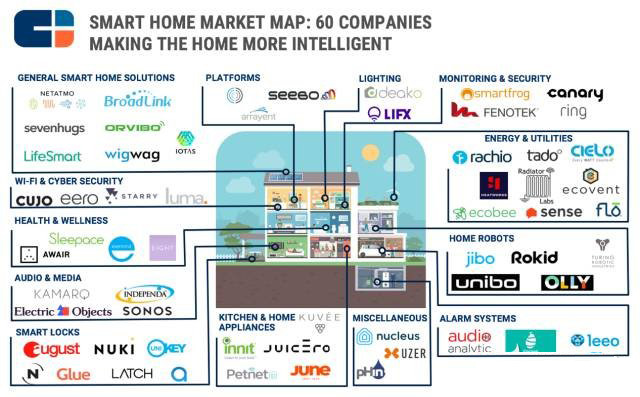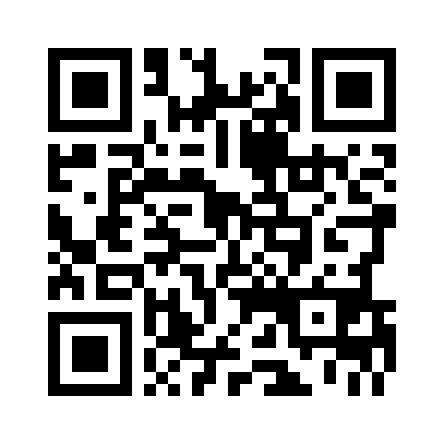1 hour later, father and children come home, the children play alone in the pool, if the abnormal surveillance cameras and swimming pool sensors will first issue a warning. In the kitchen, he asks if the smart fridge, salad dressing is adequate. He began to prepare dinner with the help of the robot. Robots help to complete the vegetable cleaning and slicing to quickly shorten the preparation time. When the man's wife dragged his tired body home, the robots suggested that they drink a glass of wine. According to salad ingredients, intelligent wine freezer for its selection of a bottle of brandy.
This is the McKinsey & Company's release of the "exciting things networking" report of the future of things in the future networking of the classic scene. Nowadays, with the gradual integration of intelligent technology into life, intelligent home business companies emerge in an endless stream, the research and development of a series of products and services to make our family more secure, more efficient and more interactive.
60 companies 13 major areas, CB Insights summed up the ecological panorama of the smart home.
June 26, CB Insights selected the world's 60 outstanding start-up smart home business. Overall, the focus of research and development in the industry is to connect to smart phones, integrated sensors or other digital interface to achieve a true sense of the "Internet" to replace the existing household appliances and other household products, or to achieve full intelligent. Since then, they are no longer dominated by the machine, but to give people the advice of life friends.

Global smart home business in the direction of the layout of things
In the picture, the current smart home business forces focus on energy and utilities, smart locks, kitchen and home appliances, monitoring and security, home robot, health, alarm system and other 13 areas.
Energy and Utilities—— Companies use sensors, monitor technology and data to conserve water and energy. This includes a company like Tado, which automatically detects the distance between the user and the house, adjusts the temperature accordingly, and controls it through the application in the smartphone.
Smart Lock ——Take August as an example, it replaces traditional keys with virtual keys and electronic locks. Many of these company's products also allow users to remotely view visitors and communicate with visitors.
General Smart Home Solutions——The company is not committed to producing a single smart gadget, but rather builds multiple device systems to automate the user's home. Such as IOTAS 'smart apartment.
Kitchen and Home Appliances —— Companies focus on unlocking "intelligent benefits" for traditional equipment and household products. For example, Innit is currently developing a machine-based cooking system that connects high-tech sensors to properly adjust heating and cooking time throughout the process.
Home robots ——home robots are currently used primarily for home environment maintenance and help the owner. Such as robotic assistants Jibo and Rokid, are typical intelligent home furnishings. Through artificial intelligence and in-depth learning, robots use voice and visual interaction to provide information and perform tasks for users.
Monitoring and safety ——the company through the camera for indoor or outdoor safety monitoring, to ensure that the family, children, the elderly and pets attention. Core companies include Smartfrog and Ring.
Wi-Fi and network security ——the company provides Wi-Fi and network security solutions to connect and protect smart devices within the home. CUJO is a smart firewall that protects the home network from hackers and has raised $ 8.5 million in recent months. While the other two companies to provide home Wi-Fi systems Eero and Starry last year, respectively, financing 50 million US dollars and 30 million US dollars.
Health——health products can help families maintain a healthy lifestyle. Such as Sleepace, is a non-wearable smart device that can monitor and help improve sleep quality; and Awair, which can detect air and stimuli in the environment.
Alarm System——The company is committed to developing alarm systems equipped with advanced monitors and sensors to detect fires, floods or other disasters to protect users' homes and avoid property damage.
Cocoon Labs has developed a smart home security device that uses low tones to detect interference from homeowners and to alert.
Audio and media ——the company offers media solutions, from hanging computers to display art, to the whole family of wireless music systems (Sonos).
Platform business —— the company does not produce their own consumer products, but to help others to AI into their own smart home products. Such as Arrayent, the company is committed to helping brands to traditional products into intelligent devices.
Lighting—— The company offers home lighting solutions such as smart switches (Deako) and smart light bulbs (LIFX).
Other—— the company's products are very unique, such as Uzer, dedicated to the development of smart home bar code scanners, making recycling more interesting and more efficient; and Nucleus, dedicated to the development of Internet connection intercom system.
Three major areas of 300 billion US dollars, the future trend of intelligent home industry
According to McKinsey "to stimulate the potential of things" report, smart home output value in 2025 will reach 200 billion to 350 billion US dollars. In the future, the core use of smart home for home automation, energy management, intelligent security.
Today, the value of household chores per household is about $ 11 trillion and is expected to reach $ 23 trillion in 2025. According to McKinsey estimates, intelligent homes such as vacuuming and chopped food can be done independently to reduce the workload of 17%.
In fact, through the sensor, and connected with the Internet, household appliances can not only complete the human to do housework, and some can even predict the needs of homeowners. Smart home can collect data on everyday usage patterns and determine family preferences through Internet data analysis and start arranging work routines such as pruning lawns every Saturday morning.
Based on the consumer survey, McKinsey believes that in 2025, 7% to 9% of developed country households will use smart home equipment to achieve household automation, the proportion of developing countries will reach 2%.
2、 Energy management (estimated at $ 52 billion to $ 10 billion in output in 2025)
Through the use of sensors and prediction algorithms, intelligent thermostats can detect when no one at home, and adjust the temperature to save energy. In the future, the Amotech smart thermostat can achieve automatic temperature rise and fall, so that people enjoy the most comfortable temperature at home. In addition, by connecting the washing machine and dryer, people can get information on energy prices to stagger the peak energy consumption.
Nest said that the smart thermostat can save 20% of the cost of heating and air conditioning, through the use of smart meters and smart appliances can also save more additional costs. Based on the consumer survey, McKinsey believes that in 2025, the adoption rate of energy control applications in developed countries will be as high as 30%, and the proportion of developing countries will be 4% to 13%.
3、Intelligent security (2025 annual output is expected to be 150-220 billion)
The Internet of Things sensor system can greatly prevent the consumer from being invaded at home. Combined with sensors, cameras and powerful analytical techniques, future networking systems can perceive the situation of residents, and if the residents are at risk, the system will issue an alert and the police or emergency relief agencies will act in a timely manner. For example, cameras and sensors can be installed near the pool so that parents can be informed immediately when the child is in a dangerous state.
According to an expert interview, McKinsey expects the security system to pay up to $ 400 per household per year. In 2025, the utilization rate of security devices in developed countries will be as high as 30%, and the proportion of developing countries will reach 9% to 13%.
Overall, the development of Internet of Things will have a profound impact on the whole industry chain of the household industry. Technology providers have the opportunity to develop new and more valuable systems to create new lines of business and create new revenue streams. Companies that use the Internet of Things system can improve operations and collect more data. And consumers will therefore enjoy greater convenience, and to greatly save time and create greater benefits.
At this point, however, as the important infrastructure to connect to the Internet, security threat multiplier, the government and related enterprises need to solve the trouble will be growing."User data" as a smart home businesses winning a magic weapon, is bound to cause a "fight".Therefore, the interests of the user's privacy and protection is particularly important.After all, when the development of science and technology even known how much milk left in the refrigerator, tap will lack a sense of security or how much we will some panic.





